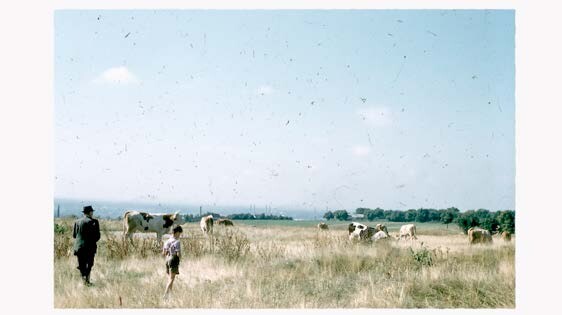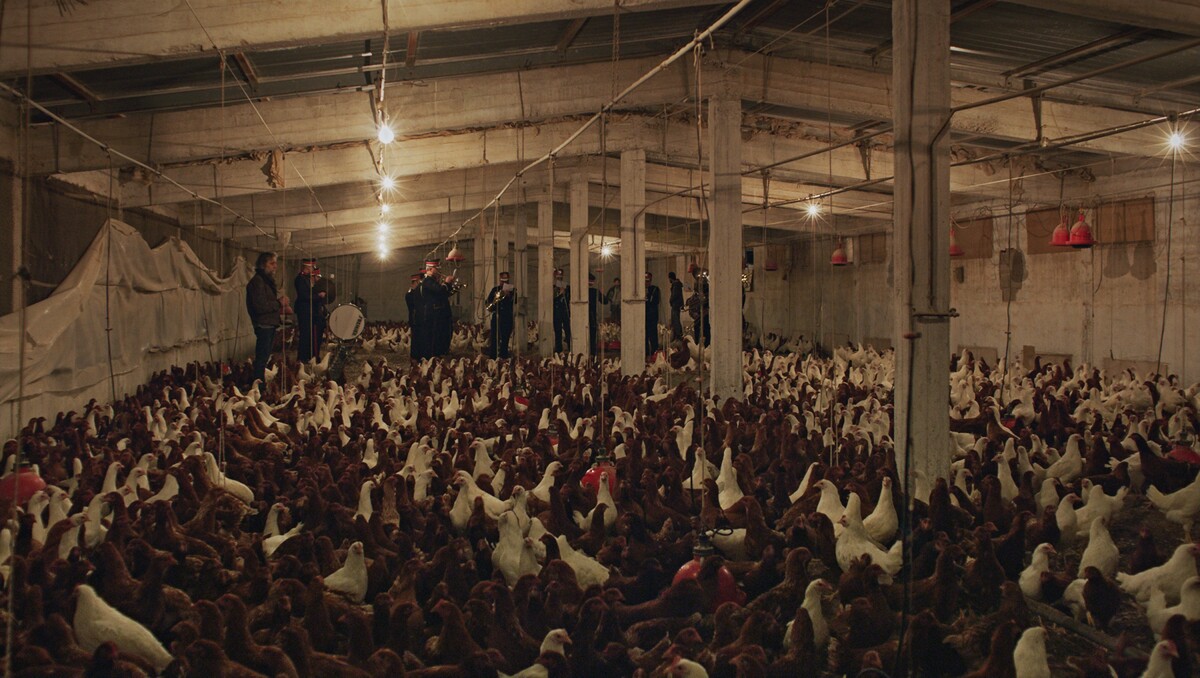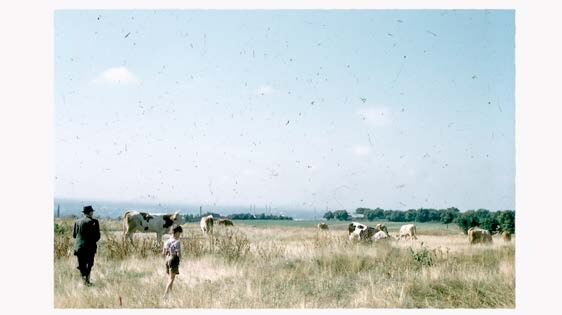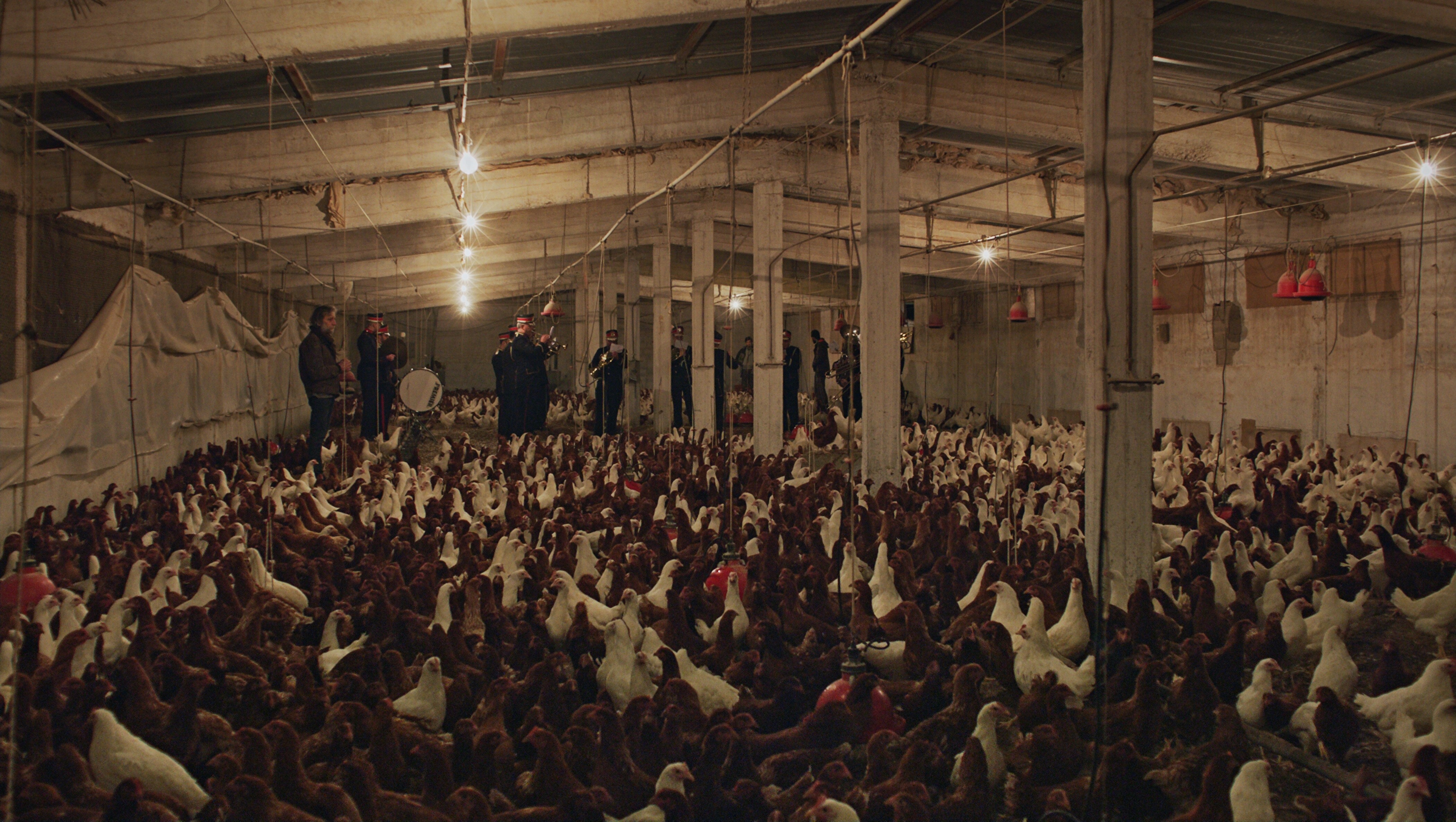Florian Hurtig’s lecture on the 500th anniversary of the Peasants’ War examines the long-lasting impact of this historical uprising on modern agriculture and society. He draws connections between the social struggles of that time and today’s challenges, focusing especially on the unequal distribution of land and the ethical questions surrounding our responsibility toward nature, plants, and animals. The accompanying film program, featuring works by Janis Rafa, Ida Zahradnik, and Antje Majewski, contrasts contemporary agricultural practices in rural and urban areas.
6:30 pm Lecture by Florian Hurtig with Q&A
8:00 pm Film screening at the Zazie Arthouse Cinema
Language: German, films with English subtitles
About the film screening:
Janis Rafa: Requiem to a Fatal Incident, 2015
The camera moves in a single-shot from a subjective hand-held point of view to an objective overview of the event and the surrounding landscape. The encountered fatal incident is a re-enactment of a real event extracted from news coverage, produced for the purposes of filming. The fireworks at the end of the video stand as yet another type of requiem to premature loss and human failure.
Janis Rafa: If I Ever Get A Monument Chickens Will Do It For Me (Requiem#3), 2021
A brass band is invited to play Enigma Variation by Elgar to a clutch of chickens inside a factory. The requiem is performed the night before the animals are transported to their final destination in the early hours of the morning.
Ida Zahradnik: Im Treiben, ein Mosaik [The Drift and Mosaic], 2025
I'm looking for them, the grazing animals that have supposedly returned to the city. Free Roaming and Grazing of Animals in urban areas was approved in the fall of 2024 by the Commission of Free Urban Use. In stories and archive material, I find places in Vienna where animals used to graze. They might want to graze in the same places as they did back then. They will get lost, they will no longer find them and drift away, because the city is completely different today. I look for the cows, the sheep, the goats, but I can't find them here anymore. Call out to them. Call out to them their new right. A look back to 1780: Wanderings with grazing animals usually lasted quite some time, it could even be years. People and animals often stayed in one place until the lush herbs of the meadows had been grazed. Then they moved on together, from one pasture to the next one. There was still plenty of pastureland, even around old Vienna.
German with English subtitles
Antje Majewski: Auf dem Land (Wietstock) [In the countryside (Wietstock)], 2023
How is life in the village? What can we learn from the past for the future? And how can a sense of community emerge again? Antje Majewski’s Auf dem Land asks villagers from Wietstock in Western Pomerania about their history and their wishes. In the video, the residents of Wietstock themselves tell the history of the village, describe the changes in ownership and the different uses of land: from originally feudal property to the settlement of the village under National Socialism, the arrival of the refugees, who received small farms after 1945, then the communalization of the farms in the LPG, the repossession after reunification, and the takeover of the land by industrial agriculture. At the same time, we follow the transformation of the village from a place where people lived on the land where they also worked and self-sufficiently produced all food, meat, timber, wool and flax, to a place whose inhabitants have very different professions, but hardly work in agriculture anymore. At the same time, many of them pass on the farmer’s knowledge of growing fruit and vegetables and raising chickens and geese in their gardens. How can a new village community develop when people no longer work together, when people live very different, individual lifes? And how do the residents of Wietstock feel about the changes in their connection to the land and landscape around them?
German with English subtitles



